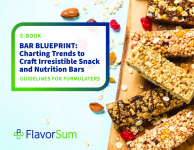3M completes integration of Food Allergen Kits for peanuts, milk & gluten

The products including 3M Allergen Protein Rapid Kits and 3M Allergen Protein ELISA Kits, with newly redesigned packaging are now available through 3M’s global sales and distribution network.
Growing importance
All AOAC Research Institute Performance Tested certificates have also been transferred to 3M.
Eric Amann, business and integration manager, 3M Food Safety, said detecting potentially harmful allergens is of growing importance in the food and beverage industry.
He added food allergen testing is one of the fastest growing segments of the food diagnostic industry.
The kits can detect processed and unprocessed allergen proteins in a variety of sample types including environmental swabs, rinse water and food products.
The line complements 3M’s existing total protein swabs and hygiene monitoring system and its technical service professionals are now assisting with allergen-related questions.
FoodNavigator reported in September last year 3M was set to acquire the US manufacturer.
Elution Technologies was bought from Bia Diagnostics and Immunology Consultants Laboratory for an undisclosed price and has one site in Colchester, Vermont.
Unlabelled allergens
The firm was founded in 2012 by Thom Grace, CEO of Bia Diagnostics and John Leslie, president of Immunology Consultants Laboratory in response to demand for better detection methods for food allergens.
More than 160 foods can cause allergic reactions. Each year in the US, it is estimated that anaphylaxis (an allergic reaction) to food results in 2,000 hospitalizations and 150 deaths.
Industry uses precautionary labelling such as “may contain…” but there are still recalls due to unlabelled allergens.
The lack of correlation between precautionary labelling and presence of allergens leads allergenic people to sometimes ignore labelling.
The Food Information for Consumers Regulation (EU) No. 1169/2011 changed European allergen labelling rules in December 2014.
















